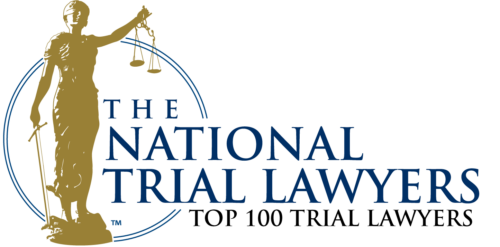A bad medical outcome does not, in itself, mean that medical malpractice has occurred. Sometimes despite the proper decisions being made and the best efforts of the doctor, unfortunate results occur. In fact even where exceptional care is provided, the patient can fail to get better and actually have their condition deteriorate. Medicine is an extremely difficult and uncertain field where the observed symptoms and signs can often indicate more than one condition. To treat the condition, the physician may have to choose from multiple equally accepted treatments for the condition. In short, while a bad outcome is required for a medical malpractice suit to go forward, the bad outcome itself is not proof that a mistake was made or that medical malpractice occurred.
While we now know what medical malpractice most certainly is not, we have yet to define what it actually is. In Pennsylvania, the definition of medical malpractice is a doctor’s failure to adhere to the accepted standard of care for a similarly situated medical professional. What this means is that for there to be a medical malpractice claim there must be a medical error or omission that fell below the acceptable national standard of care. Additionally, to go forward with a suit medical malpractice suit, Pennsylvania court rules require a Certificate of Merit by an appropriately licensed professional having sufficient experience, training, education and knowledge must be filed within 60 days of the filing of the complaint. The certificate must allege one or more of the following:
- The care, skill or knowledge exercised were less than the required acceptable professional standards and this conduct was one of the causes of the harm or injury.
- That other licensed professionals for whom this defendant is responsible deviated from an acceptable professional standard.
- No expert testimony is necessary to prosecute this claim.
Types of Medical Malpractice
Despite a renewed push for patient safety in the United States, hundreds of thousands of patients are killed by medical mistakes each year. According to the Journal of Patient Safety between 210,000 and 400,000 people who received treatment suffered some type of medical mistake that contributed to their death. Some of these medical errors include:
- Nursing home or hospital negligence – This type of abuse can take many forms. It can be an intentional act when the abuse is directed at a specific individual. It can also be an act of omission such failing to provide adequate care or failing to provide medications.
- Failure to obtain informed consent – While definitions vary from state to state, in general, informed consent means that the patient has been educated about the risks and benefits of the procedure by the doctor and has made an informed decision based on those facts. If a doctor operates or performs a procedure without obtaining informed consent, he or she may have committed battery.
- Failure to diagnose lawsuit or misdiagnosis – Not every failure to diagnose constitutes medical malpractice. There are numerous reasons why in certain circumstances a doctor may misdiagnose or fail to diagnose a condition. However, if the misdiagnosis was due to a failure to adhere to an acceptable standard of care then there may be a valid malpractice claim.
- Surgical error – Unfortunately at hospitals and medical facilities across the United States surgical errors occur. These types of errors can include operating on the wrong patient, operating on the wrong side or site and failure to obtain informed consent prior to operating. A surgical error attorney can help you if you have been a victim to this.
- Medication error – Medication errors can include the failure to prescribe the proper type or dosage of medication.
Regardless of the type of medical mistake, for there to be an actionable medical malpractice claim, there must be a breach of the acceptable standard of care.
Two Schools of Thought Defense
But, what happens when there are two or more accepted and viable treatment options? In situations like these, the doctor is required to exercise professional judgment. When there is a bad outcome due to a medical decision where multiple accepted diagnoses or treatment options existed, the medical professional may be able to invoke the “two schools of thought defense” When applicable, the “two schools of thought” defense is a complete defense to a medical malpractice claim.
The decision in Jones v. Chider states that when “competent medical authority is divided, a physician will not be held responsible if in the exercise of his judgment he followed a course of treatment advocated by a considerable number of recognized and respected professionals in his given area of expertise.” What this means, is that the two schools of thought defense are available when there are two (or more) accepted treatments for a condition. Further, this means that despite a bad outcome or the possibility that better results could have potentially been achieved, no medical malpractice occurred. There was simply a bad outcome.
For example, there is currently a split of authority regarding whether asymptomatic men should be screened for prostate cancer by PSA-level testing. Advocates for increased testing point to benefits including the significant number of people who die from prostate cancer and the possibility of early detection. Detractors point to the fact that the PSA screening test is fairly likely to return both false-positives and false negatives. Further, they point to the fact that certain individuals can only be diagnosed by exam. For a patient without prostate cancer symptoms and without increased risk factors, a doctor may have to decide whether the screening is appropriate. In this instance, a doctor may decide either course of action due to the apparent acceptance of both schools of thought by a significant number of medical experts. Contact a surgery injury lawyer if you have been hurt due to poor medical care.
Put Our Medical Malpractice Experience to Work for You
Medical mistakes happen daily throughout the United States. If you suspect that you or a loved one have been the victim of a medical malpractice, don’t delay. For your free consultation call The Reiff Law Firm at (215) 709-6940 or contact us online today.
Related Posts















